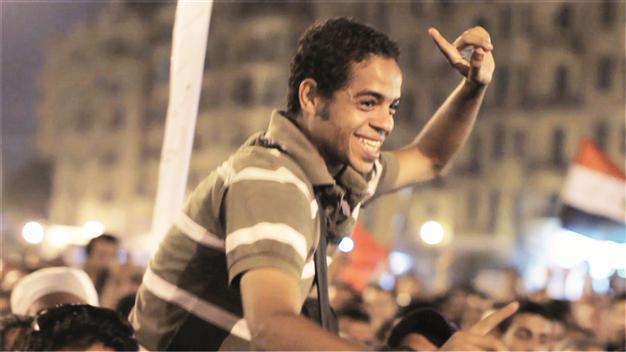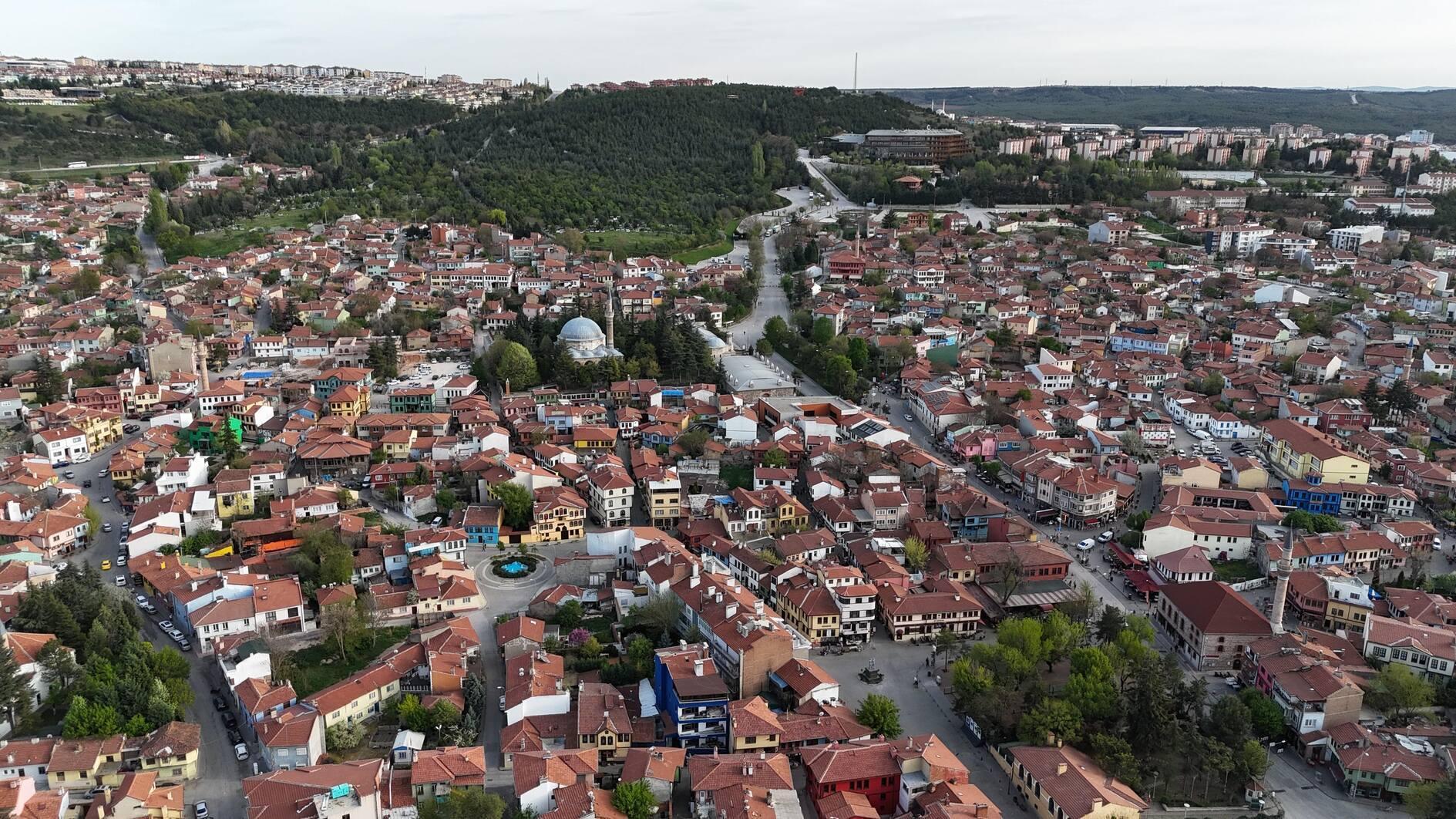Latest in a string of films on Arab Spring: ‘The Square’
Emrah Güler

‘The Square’ is the latest in a string of films on the Arab Spring that have become a fixture in film festivals in Turkey and abroad alike.
One of the nominees for this year’s Academy Award for Best Documentary Feature – and possible winner by the time this goes to print – is a film some movie buffs will remember from more than a year ago, when it won the Audience Award for World Cinema at Sundance.Released this week in Turkey, Egyptian-American director Jehane Noujaim’s “The Square” (Al-Midan) is the very same film from Sundance, yet a different one. It might even evolve into something altogether different in the future. “The Square” is an on-the-ground documentary on the Egyptian Revolution.
Chronicling the revolution from its start in early 2011 where it blossomed at Tahrir Square, until the ousting of President Hosni Mubarak, the film was ready for audiences about a year ago. But given the complicated nature of the Egyptian Revolution, with revolutions and counter-revolutions following one another, Noujaim went back to Egypt from the United States when things once again heated up in early 2013.
Noujaim filmed for six more months until the demonstrations ousted another president, Mohamed Morsi. This week’s release, nominated for an Oscar, is the final screen version of a still-evolving revolution. “The Square” is a compilation of interviews and actual footage that capture the volatile emotions of the people of Egypt.
Examples of these human stories include the singer Ramy Essam, one of the voices of the revolution with his protest anthems; Khalid Abdalla, the British-Egyptian actor, known to many from his role in “The Kite Runner;” as well as Ahmed Hassan, the young man who becomes the voice of hope, and the protagonist of the film.
Chronicling the uprisings in Egypt, Tunisia and Syria
“The Square” is the latest in a string of films on the Arab Spring that have become a fixture in film festivals here and abroad alike. Features, shorts and documentaries by filmmakers from Egypt, Syria, Tunisia and even Turkey are now anticipated with gusto by moviegoers.
The first of the high-profile films on the Arab Spring was “Tahrir 2011: The Good, the Bad and the Politician,” four Egyptian directors’ look at the revolution in three parts: the protestors, the police, and a profile of Mubarak. The film, directed by Tamer Ezzat, Ahmad Abdalla, Ayten Amin and Amr Salama, was a good example of the shared nature and narrative of the films on the Arab Spring.
While profiles of and interviews with politicians, civil leaders and prominent figures take significant screen time, the true and lasting impact of these films lies in the stories of those that have inspired change. The unique stories of the everyday men and women of the revolutions and resistance, and their personal, yet collective journeys more often are the highlight of these movies.
One of these haunting films is Stefano Savona’s “Tahrir: Liberation Square,” chronicling the two weeks after Jan. 25, 2011, through three young men who were part of the thousands of Egyptians who took to the streets to overthrow Mubarak’s regime. Another is Egyptian filmmaker Emad Maher’s “Revolution of Youth,” a film about a family of three generations in Alexandria, and how they take the historical changes in their country as they unfold.
But it is the Arab Spring, not the Egyptian Spring, and there are some notable films from other countries, as well. Director and writer Nadia El Fani’s “Neither Allah nor Master” (Laïcité Inch’Allah!) is a powerful look on the Zine El Abidine Ben Ali regime months before the Tunisian revolution and the revolution as it broke in the last months of 2010. Syrian director Ammar al-Beik’s short “The Sun Incubator” (Hadinat al-Shams) moves from a family getting ready to demonstrate in Egypt in early 2011 to the spring when Syrian Hamza al-Khateeb is shot and tortured, kick-starting Syrians to rise.
Resistance films from Turkey
Then, there are the films that take a direct look at the role of social media in the Arab Spring. As evident from its title, “Images of Revolution,” by Qatari filmmaker Ibrahim Hamdan, takes a look at the stories behind the iconic images of the uprisings that have come to symbolize the Arab Spring, the photos and videos that fuelled the revolutionary wave through Twitter and Facebook.
Carolina Popolani’s “Cairo Downtown” of 2009 is an in-depth look at the Egyptian bloggers organized underground long before the mass protests that eventually led to the fall of Mubarak. The film takes a look at how bloggers used Internet activism as a political weapon and a powerful tool to organize.
What about films on the Gezi protests that started in Istanbul last June and turned into nationwide protests against the government’s increasingly autocratic regime? There have been short films that have been circulating since the outbreak of the protests last summer. The anticipated feature documentary chronicling the protests, “Cennetin Düşüşü” (The Fall of Heaven), directed by Ersin Kana, is scheduled for release this month.
Another documentary, “Artık Yeter” (Enough!) is an evolving film that can be watched from the website of the production company Bağımsız Sinema Merkezi (Independent Cinema Center) at bagimsizcinema.org. The film takes into consideration comments and suggestions from the audience, regularly including new footage. The company has previously released another online documentary on cyberactivism and Turkey’s famous resistance hackers, Redhack, titled “Red.” Expect more films on the protests of 2013 in Turkey in the future.
















